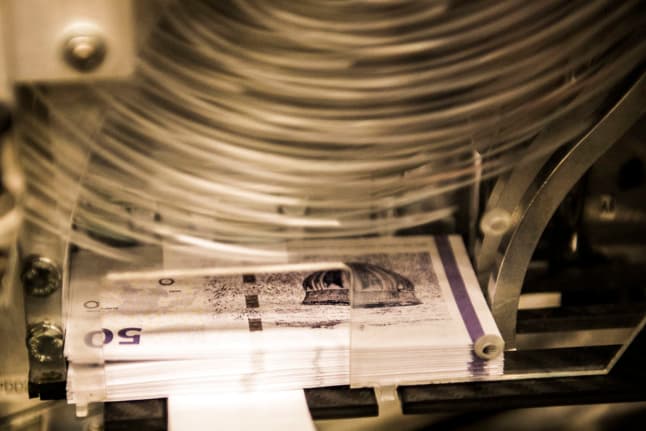Denmark’s central bank cuts interest rates in response to strong currency

The central bank, Nationalbanken, has slightly lowered interest rates in response to the krone’s currently strong position against the euro.
Interest rates for current accounts, savings and loans are decreased by 0.1 percent, to 0.6 percent, 0.6 percent and 0.45 percent respectively.
“The interest rate decrease occurs based on Nationalbanken’s purchase of currency on the market,” the central bank said in a statement.
Nationalbanken is required to maintain a consistent exchange rate between the krone and the euro.
As such the bank is adjusting interest rates with momentum behind the Danish economy, job vacancies at a high level, house prices soaring and inflation conceivable.
“The National Bank has one mandate and one only. And that is to ensure the policy of foxed exchange with the euro. And we have seen in recent times that the krone has been a bit on the strong side and that the National Bank has sold Danish kroner,” Danske Bank senior analyst Olai Milhøj told news wire Ritzau.
“So now the dynamic will be changed a bit be reducing interest to make it a bit less attractive to hold Danish kroner,” he added.
The interest rate change is however discrete enough that it will likely only impact large scale speculators.
The change in the price of a euro is less than one øre (a hundredth of a krone) and is unlikely to impact interest rates offered by banks.
Comments
See Also
Interest rates for current accounts, savings and loans are decreased by 0.1 percent, to 0.6 percent, 0.6 percent and 0.45 percent respectively.
“The interest rate decrease occurs based on Nationalbanken’s purchase of currency on the market,” the central bank said in a statement.
Nationalbanken is required to maintain a consistent exchange rate between the krone and the euro.
As such the bank is adjusting interest rates with momentum behind the Danish economy, job vacancies at a high level, house prices soaring and inflation conceivable.
“The National Bank has one mandate and one only. And that is to ensure the policy of foxed exchange with the euro. And we have seen in recent times that the krone has been a bit on the strong side and that the National Bank has sold Danish kroner,” Danske Bank senior analyst Olai Milhøj told news wire Ritzau.
“So now the dynamic will be changed a bit be reducing interest to make it a bit less attractive to hold Danish kroner,” he added.
The interest rate change is however discrete enough that it will likely only impact large scale speculators.
The change in the price of a euro is less than one øre (a hundredth of a krone) and is unlikely to impact interest rates offered by banks.
Join the conversation in our comments section below. Share your own views and experience and if you have a question or suggestion for our journalists then email us at [email protected].
Please keep comments civil, constructive and on topic – and make sure to read our terms of use before getting involved.
Please log in here to leave a comment.